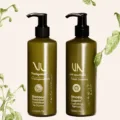Introduction
New research is shedding light on the safety and effects of parabens, a common ingredient found in cosmetics, personal care items and some foods. While parabens have come under scrutiny in recent years, the latest studies aim to provide clearer data to inform thoughtful conversations around their use.
What are Parabens?
Parabens are a class of widely used preservatives found in many cosmetics and pharmaceutical products. The most common parabens include methylparaben, propylparaben, ethylparaben and butylparaben. They prevent the growth of mold, bacteria and yeast in products to extend shelf life.
Why There Are Concerns Around Parabens
Parabens have estrogen-like properties and there are concerns around disrupting hormone activity with long-term or high exposure. Some research has detected parabens in breast cancer tumors, raising questions about a potential association. However, most experts agree the science does not clearly show parabens cause cancer.
The Latest Research Findings
Recent research found parabens in nearly all urine samples from a nationally representative sample of US adults. Over 90% had evidence of methylparaben exposure. However, exposure levels were 1,000 times lower than doses deemed safe by expert panels. This suggests paraben exposure from cosmetics and foods in real-world conditions is not likely dangerous for adults.
Another 2022 rodent study looked at maternal exposure to parabens and effects on offspring. Female rats were orally given parabens throughout pregnancy and lactation. The exposed offspring showed no significant changes in the closely examined endpoints, providing reassurance that typical paraben exposure does not impact fetal and early development.
Expert Analysis on Paraben Safety
Expert groups like the Cosmetic Ingredient Review Expert Panel continue deeming parabens safe as used in cosmetics. They recognize parabens are not inert ingredients and need reasonable exposure limits, but argue removing them could increase risks from contamination and shorten product shelf life.
FAQs
Are parabens banned anywhere?
The European Union has banned five parabens (isopropyl-, isobutyl-, phenyl-, benzyl- and pentylparaben) in cosmetics due to safety concerns. It still permits use of some parabens like methylparaben up to specified concentration limits.
Should I avoid all products with parabens?
It’s likely impossible to completely avoid parabens since they’re so widely used. Experts think occasional, low-dose exposure from cosmetics, pharmaceuticals and foods is safe for adults. Those worried can minimize exposure by checking labels.
What natural products can replace parabens?
Options like vitamin E, grapefruit seed extract, rosemary extract and neem oil can help preserve natural cosmetics and skin care products. But shelf life is often shorter without parabens or with natural alternatives.
Are parabens linked to fertility issues?
One 2017 study found a potential association between parabens on sperm quality. However, recent research on maternal paraben exposure did not find significant reproductive effects in offspring. More research is still needed on parabens and fertility.
Should I avoid parabens while pregnant or nursing?
The latest research did not show harm to offspring from maternal paraben exposure resembling real-world, low-dose conditions. However, those who are pregnant or nursing can minimize exposure by avoiding unnecessary usage of paraben-containing products if desired.









